The first intriguing question is: who is “her” in the final line? Sparknotes, in their No Fear Shakespeare series, suggests that the “her” refers to Thisbe, the character that Flute is about to portray in their play before Theseus and Hippolyta, and the ballet (which here means “ballad” not the dance) will follow Thisbe’s death at the end of the play. It makes sense, but I cannot support it. Never mind that he would never have the time needed to write and rehearse this ballet, but in the following scene, he refers to Pyramus and Thisbe as “our play.”for the short and the long is, our So why would he refer to it as “a play” in his soliloquy? Moreover, he says that he will sing the ballad “before the duke,” not at the wedding.
|
Hippolyta, I woo'd thee with my sword, | This sets the tone for the entire play. Love must be pursued forcefully, won cruelly, and smoothed over with a wedding. |
Immediately following this, Egeus enters and demands the law. He wants Hermia to marry Demetrius, but Hermia loves Lysander. However, it is his right as a father to choose his daughter’s husband. This is the first resemblance we get to Romeo and Juliet, and there are many considering they were written (probably) concurrently. Capulet wants Juliet to marry Paris, and when she refuses, he says:
Look to't, think on't, I do not use to jest.
Thursday is near; lay hand on heart, advise:
An you be mine, I'll give you to my friend;
And you be not, hang, beg, starve, die in
the streets,
For, by my soul, I'll ne'er acknowledge thee,
Nor what is mine shall never do thee good:
Trust to't, bethink you; I'll not be forsworn. (III.v)
Egeus, makes a similar threat, but this time through the law of Athens, which says that if Hermia does not accept her father’s choice:
It’s either death or a life as a nun, which in this world is equal.
(The Duke says that he is unable to extenuate the law, but he does so in Act IV. Just putting that out there.)
This scene is not uncommon for a traditional comedy. The old line states that tragedies are comedies with tragic endings, and comedies are tragedies with comic endings. A Midsummer Night’s Dream as of Act I, scene i, fits the bill. Yet it is the persistence of death, particularly among the four young lovers, that raises questions. Outside of fairy magic, the marriages of Lysander and Hermia, and Demetrius and Helena make as much sense as the Queen of the Amazons marrying a womanizer. It is also the complete absence of death from Bottom’s worldview that transforms the absurd meta-play at the end into something sublime.
Following the initial instance of threatened death, death takes on a metaphorical shape in which it augments love.
Stay, though thou kill me, sweet Demetrius (II.i)
Helena says as she chases Demetrius through the forest. Helena is so in love with him that this unrequited love is killing her (metaphorically).
And run through fire I will for thy sweet sake. (II.ii)
Lysander says when he wakes up to find himself in love with Helena. He is so in love he will kill himself for her, or at least put himself in mortal danger. The purpose of these metaphors is to demonstrate how in love the lover is, or how much they suffer when the love is not requited. It is not meant to be taken seriously, just part of a crazy comedy exploring the hyperbole of young love.
When Hermia wakes up she screams
Help me, Lysander, help me! do thy best
To pluck this crawling serpent from my breast! (II.ii)
But then we jump to III.ii and death stops acting as a hyperbolic vehicle for love and takes its own shape. When Demetrius (in love with Hermia at this point) confronts her, she says to him: | Now I but chide; but I should use thee worse, |
The dramatic irony of this scene reveals that Lysander is not dead, and therefore there is no real tragedy. That being said, that Hermia could think this reveals something about Demetrius’s character. Behind the lovesick follies of these young lovers lost in the green space lies their Athenian roots. And Demetrius seems to share some commonalities with a close contemporary, the County Paris. An upright man—a man of wax—that a good lawful man like Egeus would want for his daughter, Hermia. And one who could do something like kill Lysander with no remorse. Demetrius further perpetuates this when Hermia asks him to bring her Lysander:
I had rather give his carcass to my hounds. (III.ii)
Again, Demetrius knows, and we know, that he has not killed Lysander, but his character is intensified by the spark of villainy that love creates. Lysander absurdly declares that he will run through fire for Helena’s love, but Demetrius, without the excuse of a magic flower, is believed to be and desires to be a murderer for love. |
The drama grows throughout the scene as Demetrius and Lysander vie for Helena’s love, concluding in what would have been a fight to the death. Meanwhile, Hermia prepares to savagely tear Helena apart, leaving Helena as the only character not consumed by violence.
The action in the forest is kept safely within the realm of comedy by Oberon’s magic. We are safe, as audience members, knowing that the supernatural authority figure is watching over everyone and will not let tragedy strike. However, we have to look at what the flower really represents, and how much it truly transforms people.
Hermia is not affected by the magic at all, but is perfectly willing to be killed when she thinks Lysander is dead, and to kill Helena (or at least hurt her) when she thinks Helena has stolen Lysander. Demetrius was unfaithful long before entering the forest. Helena informs us that:
ere Detrius look'd on Hermia's eyie,
He hail'd down oaths that he was only mine;
And when this hail some heat from Hermia felt,
So he dissolved, and showers of oaths did melt. (I.i)
Even though Demetrius is presented as one who could have killed Lysander, Lysander is the more brazen in front of the Duke at the start of the play, and willing to flout the law by eloping with Hermia. In the forest, under the influence of the flower, he is still the more brazen and far more violent in his hatred of Hermia than Demetrius is. While Helena, also not transformed, is not prone to violence, she risks her reputation and name. Demetrius tells Helena:
You do impeach your modesty too much,
To leave the city and commit yourself
Into the hands of one that loves you not;
To trust the opportunity of night
And the ill counsel of a desert place
With the rich worth of your virginity. (II.i)
And Helena corroborates this sentiment when she paints herself as Daphne chasing Apollo: a play on a Greek tale in which Apollo chased Daphne against her will. While not violent, Helena represents the unbridled sexual passion that became the subject of several tragic novels, such as Clarissa, and Tess of the D’Urbervilles. All without magic. |
While the comedy of this play is ever present, A Midsummer Night’s Dream strains towards tragedy, plucking the ills of young love that we see play out in Romeo and Juliet, and placing them in a protective space. So we can laugh at Helena chasing Demetrius, or Lysander’s cruelty towards Hermia, or Hermia and Helena’s heightened confrontation—but as we laugh at the jokes and the absurdities, we realize that we are laughing at ultimately tragic situations. And as Bottom realizes in his epiphany, it is tragedy or death that makes comedy more glorious.
You can take away the comedy of this play and be left with an interesting musing on love, as Peter Sellars (not that one) demonstrated in his 2014 production at the Stratford Shakespeare Festival. But if you remove the tragedy or drama from this play, you are left with little more than the mechanicals’ production of Pyramus and Thisbe at the end of the play.
The meta-play of Pyramus and Thisbe at the end is a well-constructed microcosm of A Midsummer Night’s Dream. It exists in paradoxes as a tedious brief merry tragedy.
PHILOSTRATE
A play there is, my lord, some ten words long,
Which is as brief as I have known a play;
But by ten words, my lord, it is too long,
Which makes it tedious; for in all the play
There is not one word apt, one player fitted:
And tragical, my noble lord, it is;
For Pyramus therein doth kill himself.
Which, when I saw rehearsed, I must confess,
Made mine eyes water; but more merry tears
The passion of loud laughter never shed. (V.i)
In this way, Pyramus and Thisbe exists in Romeo’s world of
brawling love! O loving hate!
O any thing, of nothing first create!
O heavy lightness! serious vanity!
Mis-shapen chaos of well-seeming forms!
Feather of lead, bright smoke, cold fire,
sick health!s (Rom I.i)
It is a world where the absurdities (the unjustified tragedies) is painted over by comedy. Everything in the play is absurd, and should be played as such, but within the absurdities lies some true sentiments.
As ridiculous as Bottom is as Pyramus – full of exaggerations and malapropisms, Hippolyta says: |
|
Something in the earnestness of Bottom has leaped over her cynicism and attacked her heart. This is the magic of the play – both plays. There is nothing logical to suggest that we should feel anything for the characters, but the deaths of Pyramus and Thisbe, and the fear of death of the four Athenian lovers make the absurdities glorious.
This is the world of Shakespeare’s plays before Hamlet. For when the prince dies, there are no silly comedies to mask the tragedies, no magic, and no dreams—the rest is silence. But with this play, Puck removes our burdens through his epilogue—as seen here:
2 Comments
Alex Benarzi
11/19/2023 04:01:42 pm
Thank you!
Reply
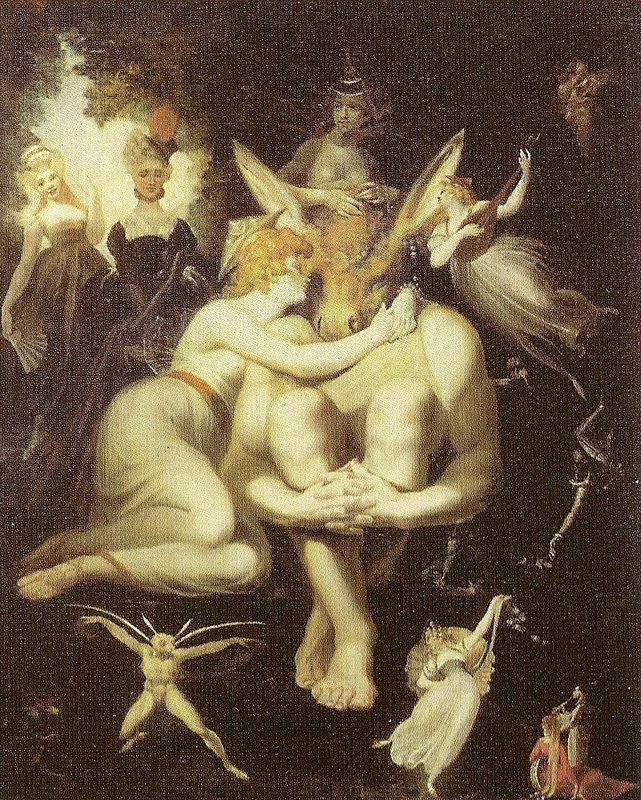

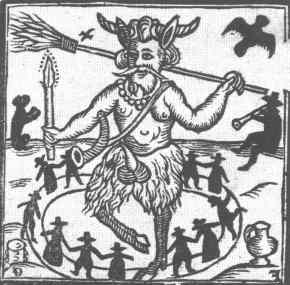
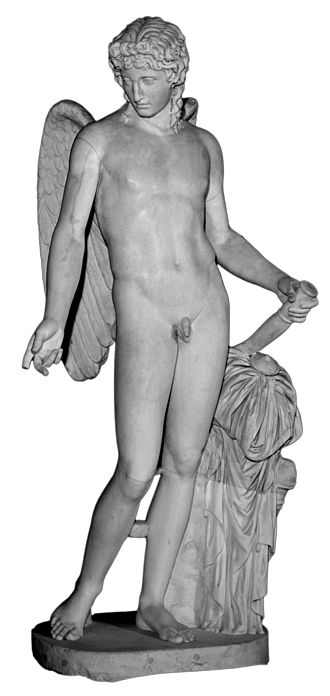
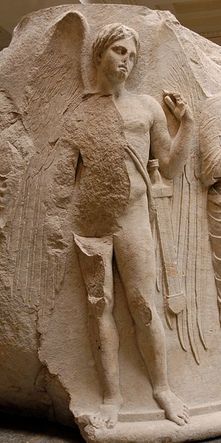

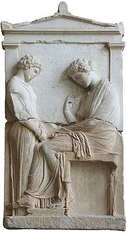
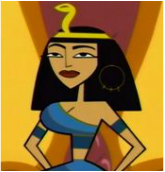
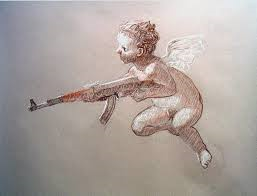

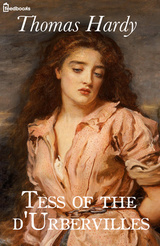
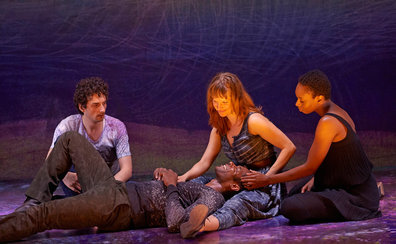
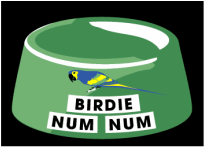
 RSS Feed
RSS Feed